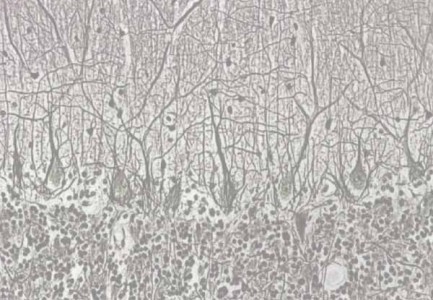When everything is perfectly in time, the mind tends to ignore it.
/ During the run of the gallery show at Edward Cella in Los Angeles, a frequent question that I never felt I was able to fully answer, was..... "How closely do your pieces match the data you've collected?" The watercolor drawings were intense replicas of the sleep pattern and daily activity data collected....except for the problematic ones I cut up and rearranged. The wood assemblage pieces worked from the data, and then I strayed a little, and came back to close attention, and then would stray a little. Somehow it felt critical to capture the sense of when they're made in addition to the plan for what they're intended to be. I've always thought the feeling or emotion that you put into the piece can be felt later, and tried to make the work capture the feeling of when it's made.
I read with huge interest article in today's Science section (yes, my favorite part of the NY Times)...the article "To tug at the heartstrings, music first must tickle the neurons".
During the run of the gallery show at Edward Cella in Los Angeles, a frequent question that I never felt I was able to fully answer, was..... "How closely do your pieces match the data you've collected?" The watercolor drawings were intense replicas of the sleep pattern and daily activity data collected....except for the problematic ones I cut up and rearranged. The wood assemblage pieces worked from the data, and then I strayed a little, and came back to close attention, and then would stray a little. Somehow it felt critical to capture the sense of when they're made in addition to the plan for what they're intended to be. I've always thought the feeling or emotion that you put into the piece can be felt later, and tried to make the work capture the feeling of when it's made.
I read with huge interest article in today's Science section (yes, my favorite part of the NY Times)...the article "To tug at the heartstrings, music first must tickle the neurons".
In conversation with a number of musicians, Pam Bellock quotes Rosanne Cash...."Emotion in music depends on human shading and imperfections...bending notes in a certain way, and holding a note a little longer."
Geoff Emerick, a recording engineer for the Beatles said "Often when we were recording, some of those Beatles rhythm tracks, there might be an error incorporated, and you would say...That error sounds rather good...and we would actually elaborate on that. When everything is perfectly in time, the ear or the mind tends to ignore it, much like a clock ticking in your bedroom -- after awhile you don't hear it."
The article explains elaborate experiments) of Daniel Levitin (great writer and researcher....' see his earlier book "This is your brain on music") which have recorded music and slightly shifted the rhythm mechanically and tested listener responses....and none convey the emotion or produce the delight of the original with small human imperfections.
They described exactly what I was trying to do.
"Every day I'm a slightly different person," Yo-Yo Ma said. "The instrument which is sensitive to weather and humidity changes, will act differently. There's nothing worse than playing a really great concert and the next day saying, 'I'm going to do exactly the same thing,' It always falls flat."
p.s. pic of neurons above. Still believe the nature of compelling visual rhythm is the relationship to your brain's neurons...spaces, proportions, rate of synapse firing and the rhythm of mathematical pattern which connect the different types of memory. More soon.



